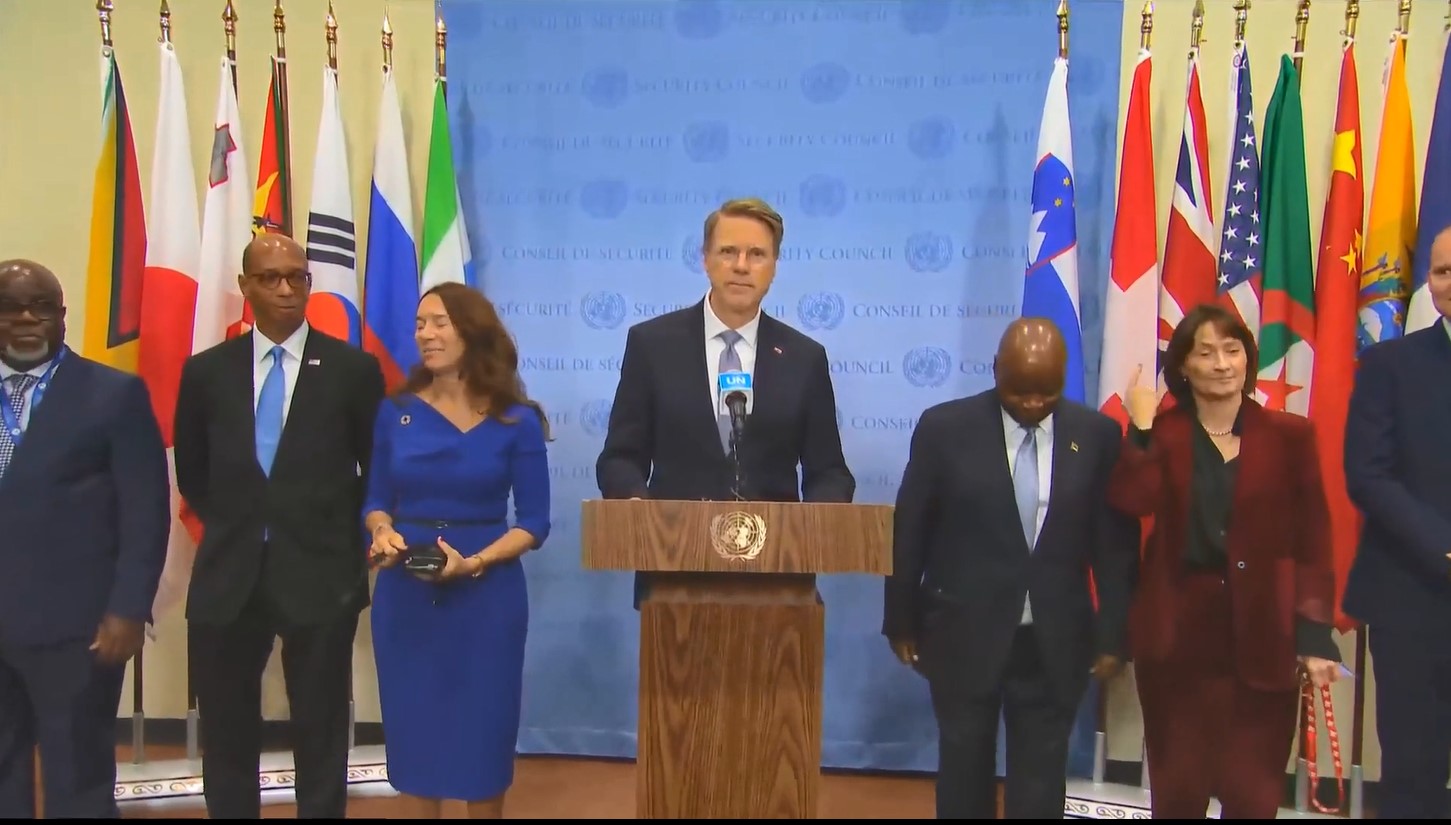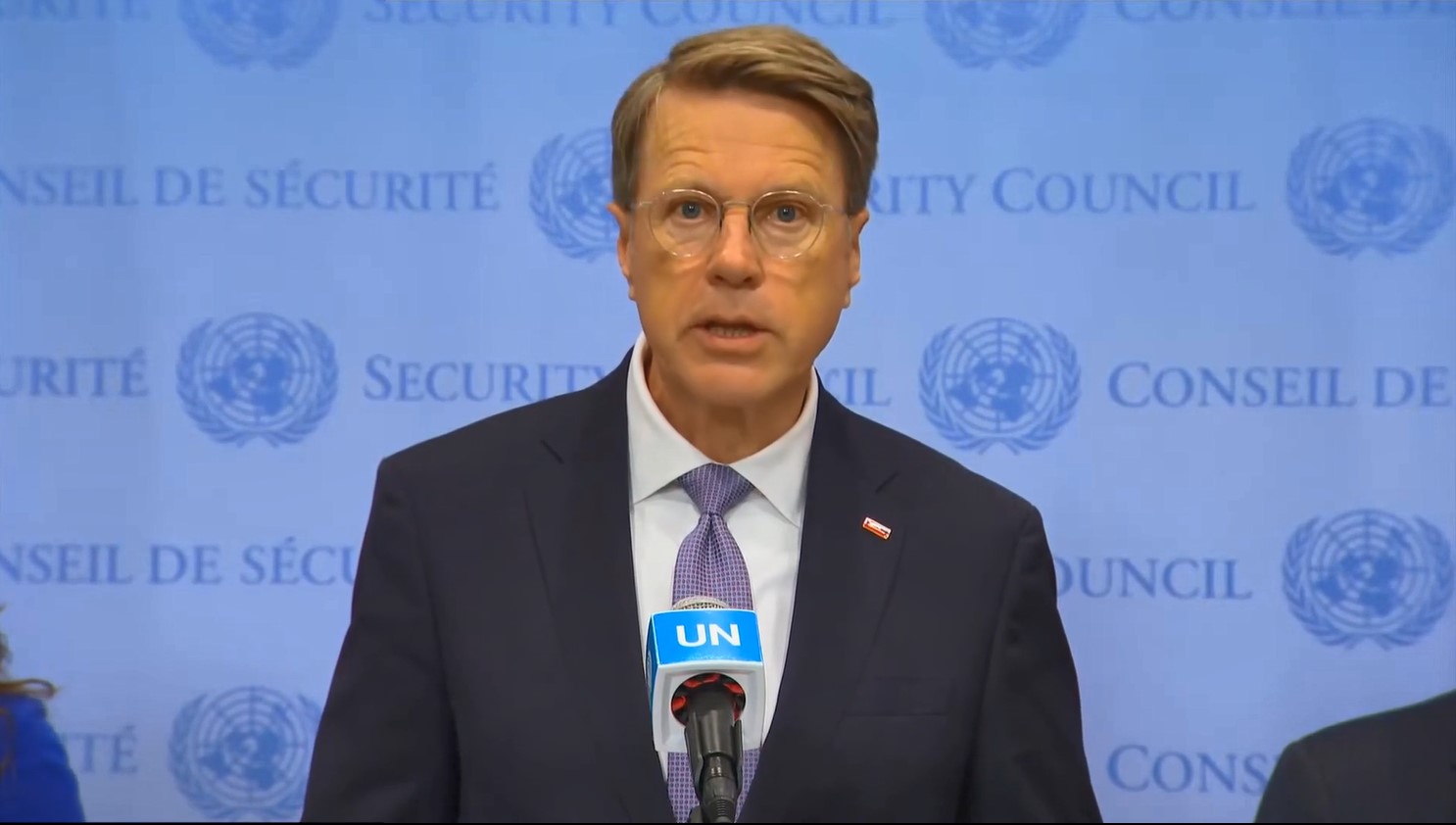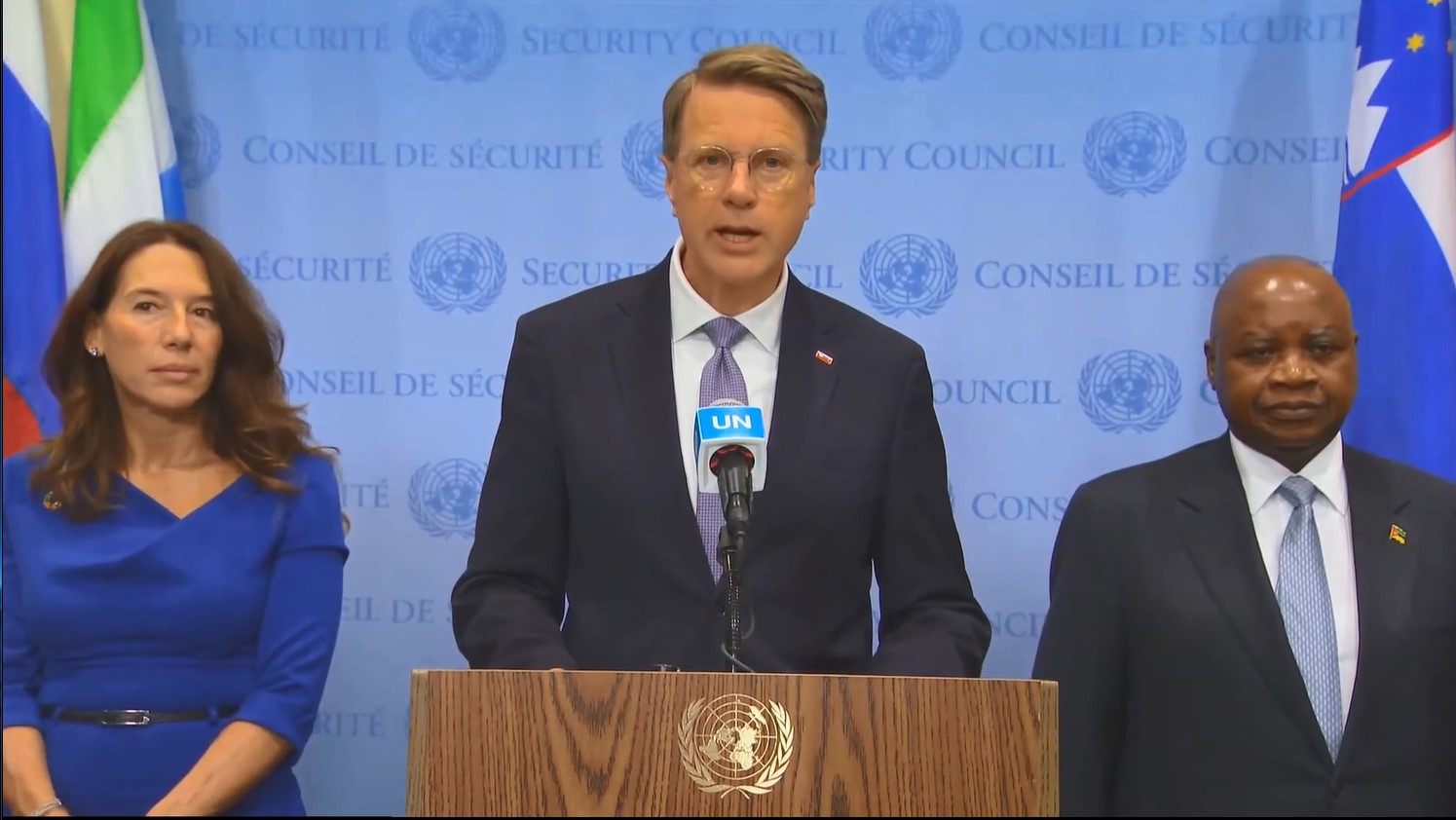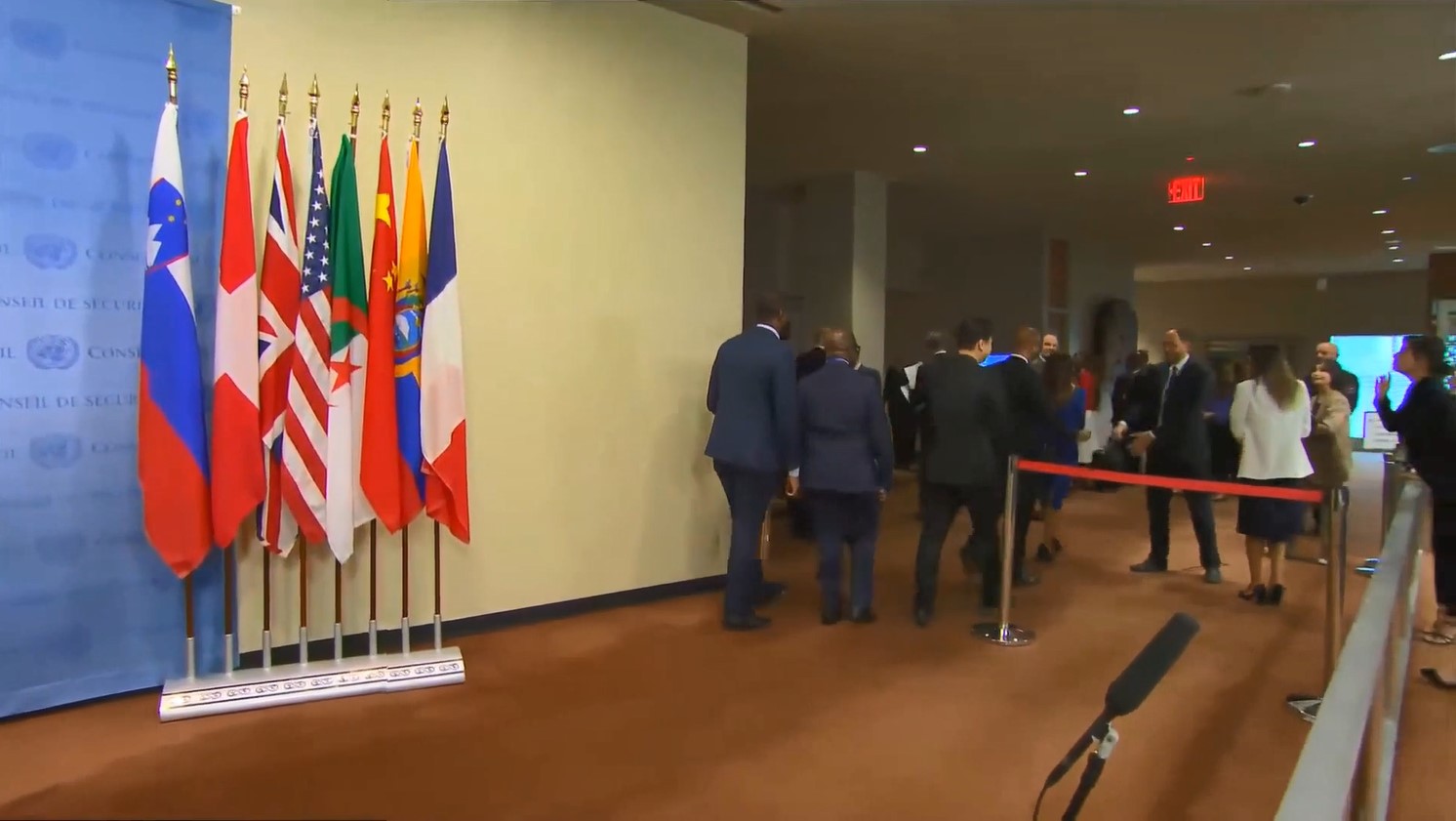

Good morning. Today, the Security Council convened for an open debate on UN peacekeeping operations. France, Guyana, Japan, Malta, Mozambique, the Republic of Korea, Sierra Leone, Switzerland, the United Kingdom, the United States, and my own country, Slovenia, underscore the importance of a holistic approach to the climate, peace, and security in the context of the UN peacekeeping.
If the UN peacekeeping operations are to successfully fulfill their indispensable mandates, climate change considerations need to be taken into account. In this context, we take this opportunity to highlight three key messages.

First, climate change and environmental degradation can exacerbate risks to international peace and security. Fragile and conflict-affected countries and communities are among the most vulnerable to the impacts of climate change. To enhance the effectiveness of UN peacekeeping operations, it is essential to integrate data-based environment and climate security considerations where appropriate into risk assessments, monitoring, planning, reporting, and mandate implementation.
Risk assessment and risk management should be inclusive, comprehensive, and gender-responsive, so the needs of all affected communities are addressed, and peacekeeping efforts are sustainable. Climate security advisers within the UN peacekeeping operations can play a significant role in mapping risks and providing valuable guidance to both missions and host authorities on practical actions that may be taken. We reiterate our call for the appointment of a UN Special Representative for Climate Peace and Security to address the intersection of climate and conflict from an evidence-based point of view.
Second, we believe UN peacekeeping operations can mitigate conflict-related risks exacerbated by climate change by working with host communities and the UN country team. This can contribute to the development of conflict-sensitive approaches to adaptation and mitigation responses on one hand and climate-sensitive approaches to conflict management, prevention, and peacebuilding on the other, thereby reinforcing the benefits of climate action alongside peace and security efforts.
Considerations of the adverse effects of climate change in the mandates of UNIS, MINUSCA, MONUSCO, and UNMISS missions, comprising 75% of all currently deployed peacekeeping personnel, represent a decisive contribution toward these goals.
Third, UN peacekeeping operations must adapt to ensure their own operational effectiveness and abilities to implement mandated tasks, including the protection of civilians. This requires careful assessment and planning. We emphasize the importance of the United Nations Department of Operational Support strategy, and I quote, "The Way Forward: Environmental Strategy for Peace Operations 2023 to 2030." Good stewardship of resources ultimately contributes to a positive legacy in host countries as part of the wider UN efforts beyond missions' deployment.
Finally, we commend the troop and police-contributing countries for their innovation, professionalism, and commitment in adapting their approach and capabilities to effectively operate in environments increasingly impacted by climate change. We stand before you today ready to forge ahead in our efforts to advance a systematic, responsive, inclusive, and evidence-based approach to climate, peace, and security in the context of UN peacekeeping operations.
Thank you.














